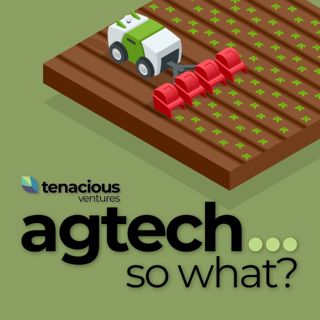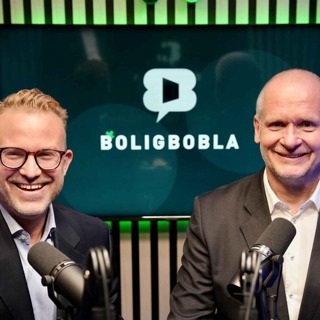
Beyond Scale: Native Grains and Indigenous-Led Food Systems with Jacob Birch
While there is a growing recognition of the importance of indigenous knowledge in agriculture, all too-often, First Nations people are being asked to fit in with an established model. What if we flipp...
4 Feb 39min

The Future of Farming is Autonomous, with Brett McMickell of Kubota
We’ve hit a tipping point for autonomy in agriculture, so how far off is fully autonomous farming? In this episode, Matthew Pryor sits down with Brett McMickell, Chief Technology Officer at Kubota Nor...
21 Jan 41min

Making underwater forestry scalable and sustainable, with Andrew Morgan of Hydrowood
Today's episode is a tangible example of a company in the "natural capital" space. While not traditional agtech, the Hydrowood journey hits familiar themes: building a business within nature's constra...
10 Des 202547min

Have we hit the tipping point for autonomy in ag? With Shane Thomas and Matthew Pryor
Over the past few years, the conversation about autonomy in agtech has moved from “but, does it work?” to “how can I get started?” This is a significant shift, indicative of autonomous machinery becom...
26 Nov 202532min

The Business Case for Electrifying Agriculture, with Cherry Grower Mike Casey
In the race to decarbonize agriculture, the spotlight often falls on carbon sequestration, genetics, and alternative proteins. But have we overlooked something that’s right in front of us? Electricity...
12 Nov 202544min

The realities of winding up an agtech app, with Nikki Davey
What happens when an agtech startup with market pull, a clear mission, and global momentum still doesn’t make it?Nikki Davey is the founder of Grown Not Flown, which helped thousands of local flower g...
30 Okt 202545min

Agtech trends: bundling, unbundling, LLMs and more with Shane Thomas and Matthew Pryor
‘Bundling’ is a well-known business strategy, especially in tech, where it’s not only used to increase sales and move slow-selling products, but also to tie customers into an ecosystem (such as Apple ...
15 Okt 202532min

Putting cotton farmers at the forefront of the cotton industry, with Marzia Lanfranchi
The biggest issue facing the cotton industry isn't fast fashion or water consumption. It's that the people growing cotton have been rendered invisible. The industry fixates on fiber quality and commod...
1 Okt 202531min





















